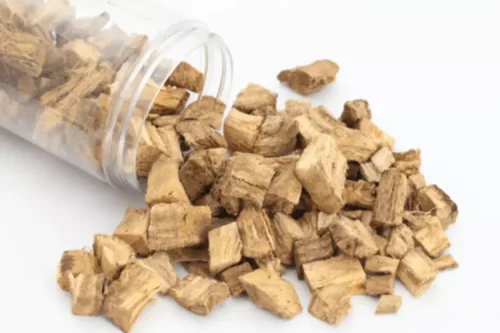Alcohol and kidney disease

This indicates that long-term ethyl alcohol consumption can activate both intrinsic and extrinsic pathways of apoptosis in the kidneys (Figure 1). However, other studies found that long-term alcohol consumption aggravates renal fibrosis, which may be related to epithelial mesenchymal transdifferentiation and fibrosis induced by ethanol [33,47,56]. The effects of medium and high doses of metamizole on the heart, lung, liver, kidney, and stomach were investigated biochemically and histopathologically and evaluated by comparison. Both our biochemical and histopathological findings showed that metamizole did not cause damage to the lung and stomach tissue. However, metamizole caused mild oxidative damage in heart tissue, moderate oxidative damage in liver tissue, and severe oxidative damage in renal tissue.
Know Your Kidneys – Identify and reach your kidney health goals.

Kidney pain usually appears in the back, on either side of the spine, just under the ribs. A person who experiences this type of pain, especially if it intensifies over hours or days, may have a serious illness and should speak to a doctor. If you have CKD, you may eventually require dialysis or a kidney transplant. The authors are indebted to Dr. George Kunos, NIAAA Scientific Director, for his ongoing support and critical reading of the manuscript. Dr. Matyas was supported by a scholarship from the Hungarian-American Enterprise Scholarship Fund/Council on International Educational Exchange.
Association between total alcohol intake and change in the eGFR over 12 years

Follow a low-fat, healthy diet that has plenty of fresh fruits and vegetables. Treat gastritis by avoiding alcohol, pain medications, and recreational drugs. Your doctor may does alcohol affect your kidneys prescribe proton pump inhibitors or H2 antagonists to reduce the production of stomach acid. You can have a sports drink that has electrolytes and a carbohydrate solution.
Watercress: Everything You Need to Know
Among the most important substances contributing to these conditions are water, sodium, potassium, calcium, and phosphate. Loss or retention of any one of these substances can influence the body’s handling of the others. In addition, hydrogen ion concentration (i.e., acid-base balance) influences cell structure and permeability as well as the rate of metabolic reactions. The amounts of these substances must be held within very narrow limits, regardless of the large variations possible in their intake or loss.

Alcohol-induced urination reduced the subjects’ plasma volume, resulting in an increased concentration of plasma sodium. In addition, the subjects’ blood pressure and plasma potassium concentration decreased. These changes in fluid volume, electrolyte balance, and blood pressure may have stimulated the activity of hormones to return body fluid volume and composition back to normal, which occurred soon after consumption. Clinical studies of hypertensive patients have demonstrated that reducing alcohol intake lowers blood pressure and resuming consumption raises it.
- So, alcohol consumption can be a double-edged sword for patients with CKD, and any policy regarding alcohol consumption for them must be very cautious.
- Although most of the alcohol is metabolized in the liver, the kidneys are equally important in the metabolism and excretion of ethyl alcohol.
- Consistently, a previous study histopathologically observed that moderate necrosis developed in the liver tissue of 500 and 1000 mg/kg MT groups in response to oxidative stress [15].
- This has a harmful effect on your overall health and can increase the chance of complications.
- Na+-K+-ATPase present on the proximal tubular epithelial membrane is important for tubular reabsorption.
Therefore, the effect of ethanol on renal antioxidant capacity varies with the concentration of ethanol and the duration of stimulation. In general, ethanol causes oxidative stress-related damage in the kidneys, but sometimes, in some conditions, it also improves the antioxidant capacity of the renal cells. Unfortunately, we only know that low-concentration ethanol can improve renal antioxidant capacity, but the exact dose and period are still unclear. Alcohol does not cause direct harm to the kidneys, especially when consumed in a safe manner. However, if you have kidney disease, you need to be mindful of how much you drink and the downstream effects that alcohol can have on your body.
- Not all forms of kidney disease are preventable, but adopting a healthful lifestyle may reduce the risk of complications, even in people with genetic kidney disorders.
- It also might be due to an anatomical issue, like a ureteropelvic junction obstruction.
- Small amounts of unwanted substances also are secreted directly into the nephron tubules.

The kidneys are hard at work on any given day in a healthy person, but the kidneys of a heavy drinker work overtime. A heavy drinker is defined as a woman who drinks more than seven times a week or a man who drinks more than 14 times a week. People who maintain this kind of drinking habit are at double the risk for developing kidney disease compared to the general population, including moderate drinkers. Kidney disease can also be brought about by high blood pressure and liver disease, both of which are possible effects of alcoholism.
Adverse effects of metamizole on heart, lung, liver, kidney, and stomach in rats
- A recent study showed that 500 and 1000 mg/kg metamizole doses caused moderate liver damage [15].
- However, alcohol consumption can have negative effects on the body and should generally be avoided if you want to keep your kidneys healthy.
- This is the area at the back of your abdomen, under your ribcage on both sides of your spine.
- While these problems may happen slowly and without symptoms, they can lead to kidney failure, which can appear without warning.
However, long-term alcohol consumption can activate the RAS and enhance sympathetic nervous activity, which elevates the systemic BP and destroys the normal structure of the glomeruli. Furthermore, this change is irreversible, and the renal structure cannot return to normal once ethanol stimulation is stopped [26,45]. Physically, the kidneys have several enzymes with antioxidant capacities, including superoxide dismutase (SOD), catalase (CAT), and glutathione peroxidase, which can balance various oxidative processes. Several studies have demonstrated that alcohol consumption increases ROS generation, which contributes to lipid peroxidation and damages antioxidant capacity [34,35].
Drinking patterns and associated effects
Under the influence of antidiuretic hormone (ADH), for example, the tubules can create either a concentrated urine, to discharge excess solutes and conserve water, or a dilute urine, to remove extra water from body fluids. In the absence of ADH, when body fluids are overly dilute, the kidneys dilute the urine, allowing more water to leave the body. “Normal” urine flow rate is 1 milliliter per minute (i.e., approximately 1 to 1.5 L/day), but this rate can vary widely, depending on water intake or dehydration level, for instance. In addition to their role in regulating the body’s fluid composition, the kidneys produce hormones that influence a host of physiological processes, including blood pressure regulation, red blood cell production, and calcium metabolism. Besides producing hormones, the kidneys respond to the actions of regulatory hormones produced in the brain, the parathyroid glands in the neck, and the adrenal glands located atop the kidneys. A cell’s function depends not only on receiving a continuous supply of nutrients and eliminating metabolic waste products but also on the existence of stable physical and chemical conditions in the extracellular fluid1 bathing it.
